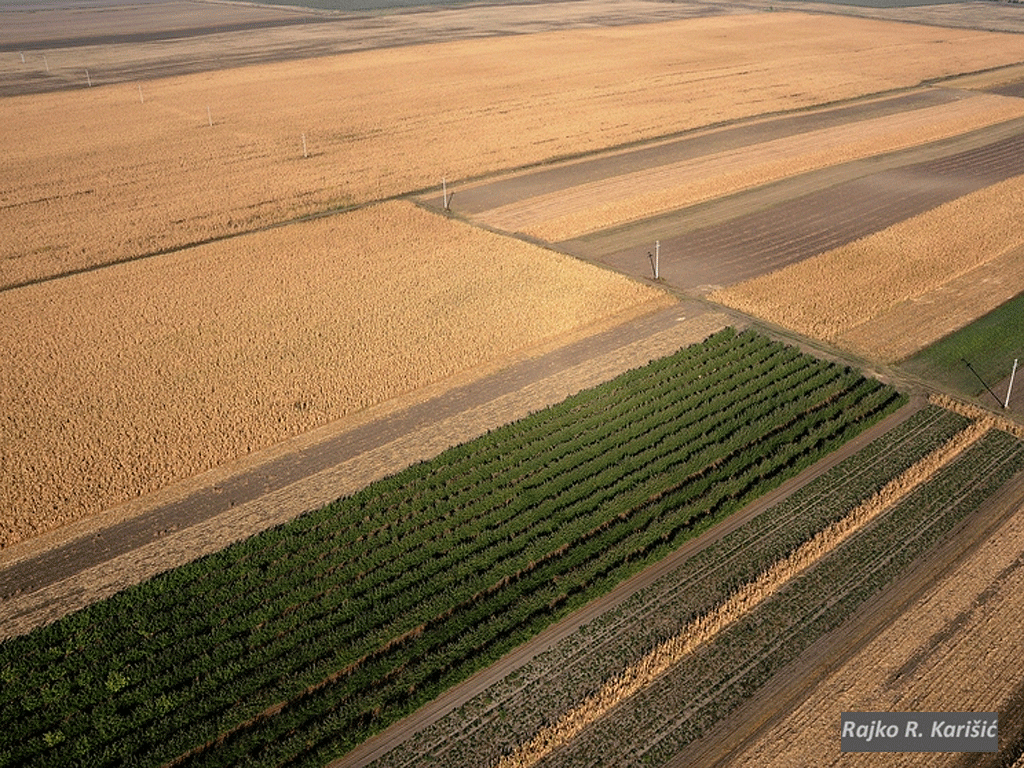Serbian residence condition for foreigners for purchase of farming land – New law on agricultural land on public review in mid-July
Source: eKapija
 Sunday, 09.07.2017.
Sunday, 09.07.2017.
 14:21
14:21
 Sunday, 09.07.2017.
Sunday, 09.07.2017.
 14:21
14:21
(Photo: Rajko Karišić)

Allegedly, there are still uncertainties regarding the temporal-legal connection of foreigners with Serbia, but the majority of the members of the commission preparing the new law believe that this is a solution guaranteeing protection of local agriculturists.
Minister Branislav Nedimovic too recently announced that the state would opt for a concept of a person having residence in the territory of Serbia for a certain period of time, pertaining to both natural and legal persons, before being able to become owner of agricultural land.
Agro-economic analyst Milan Prostran agrees with this position. He says in his interview for eKapija that he advocates implementing the residence criterion, with a minimum of 10 years of living in Serbia, thereby “complicating” the procedure of the purchase of land by foreigners.
– The area of land foreigners can buy should also be limited to, for example, a maximum of 100 hectares, whereas the third condition, in my opinion, should be a minimum of five years in the agriculture business. In other words, potential purchasers should need to be experts in this field – Prostran points out.
With these limiting factors, the state would attempt to partially ameliorate the situation which has arisen as the result of the signing of the Stabilization and Association Agreement (SAA) in 2008, by which the country obliges to enable foreigners to trade with farming land beginning with September 1. Serbia is the only country to accept, within the accession negotiation process, to liberalize the agricultural land market, whereas other countries only needed to accept the obligation following the accession to the EU.
– Since we are aware that we can’t change the SAA, and the current authorities have also known this for five years now, we need to fight for amending the law on agricultural land by September 1, when the SAA is to come into effect. Of course, we should have thought about this earlier and I’m afraid we won’t complete everything in time, as the law has not even been put before the National Assembly yet – Prostran explains.
He believes that the announced public review of the new law, which the Ministry of Agriculture says should start in around ten days, is certainly late and that it is made even more pointless by the fact that it takes place in the middle of the summer, when most people are on vacation.
– If we are not able to adopt the amendments in time, another option is to implement the model of Hungary, which, in its time, organized a referendum asking its citizens whether land should be sold to foreigners or not. As 80% of Hungarians were against, the ban was integrated into the Constitution as well, even though the country had been a member of the EU for several years at that point. This is probably the most extreme example – says Prostran, who is of the opinion that selling agricultural land practically means “selling the country’s sovereignty”, which is why he emphasizes that amendments need to be adopted as soon as possible, thereby delaying the sale of the land to foreigners by 10 years at least.
Implementation of SAA not entailing limitless sale of land
On the other hand, European Commissioner for Agriculture and Rural Development Phil Hogan says that the sale of agricultural land is a sensitive issue, but points out that it shouldn’t be cause for “unreasonable fear”, as the SAA does not provide the citizens of the EU with the ability to purchase land without any limitations.
– The SAA means that there will be no discrimination between the citizens of Serbia and the EU when purchasing land, including agricultural land, beginning with September 1, 2017, and the Serbian authorities will still be able to regulate the terms of the purchase of land, provided those terms are applied equally – Hogan said for the Agrosmart website.
He reminded that, in previous instances of the enlargement of the EU, progressive liberalization of the purchase of land had not led to a situation in which foreigners are buying farming land in new member-countries in considerable amounts.
– In fact, citizens or companies from the EU are already able to purchase land in Serbia through companies registered in the country, but have been doing so in limited amounts only. In any case, as in all economic sectors, foreign investments shouldn’t be viewed with suspicion – they can bring new technology and knowledge and contribute to an improvement of the competitiveness of agriculture in Serbia – Hogan concluded.
M.A.
Companies:
 Ministarstvo poljoprivrede, šumarstva i vodoprivrede Republike Srbije
Ministarstvo poljoprivrede, šumarstva i vodoprivrede Republike Srbije
 EUROPEAN COMMISSION Bruxelles
EUROPEAN COMMISSION Bruxelles
 Agencija za privredne registre Beograd
Agencija za privredne registre Beograd
Tags:
Branislav Nedimovic
Law on Agricultural Land
agricultural land
sale of agricultural land to foreigners
sale of land to foreigners
liberalization of purchase of agricultural land
Milan Prostran
Stabilization and Association Agreement
SAA
EUropean Commission
Phil Hogan
Business Registers Agency
Comments
Your comment
Most Important News
Full information is available only to commercial users-subscribers and it is necessary to log in.
Follow the news, tenders, grants, legal regulations and reports on our portal.
Registracija na eKapiji vam omogućava pristup potpunim informacijama i dnevnom biltenu
Naš dnevni ekonomski bilten će stizati na vašu mejl adresu krajem svakog radnog dana. Bilteni su personalizovani prema interesovanjima svakog korisnika zasebno,
uz konsultacije sa našim ekspertima.


 Izdanje Srbija
Izdanje Srbija Serbische Ausgabe
Serbische Ausgabe Izdanje BiH
Izdanje BiH Izdanje Crna Gora
Izdanje Crna Gora


 News
News






